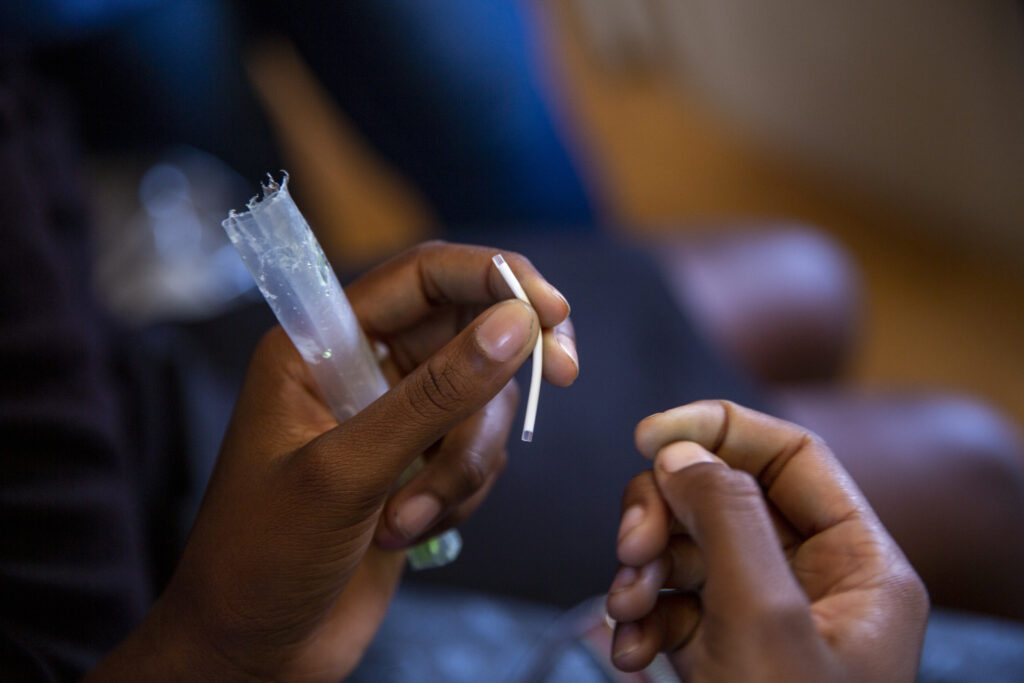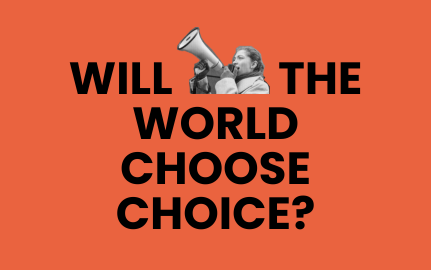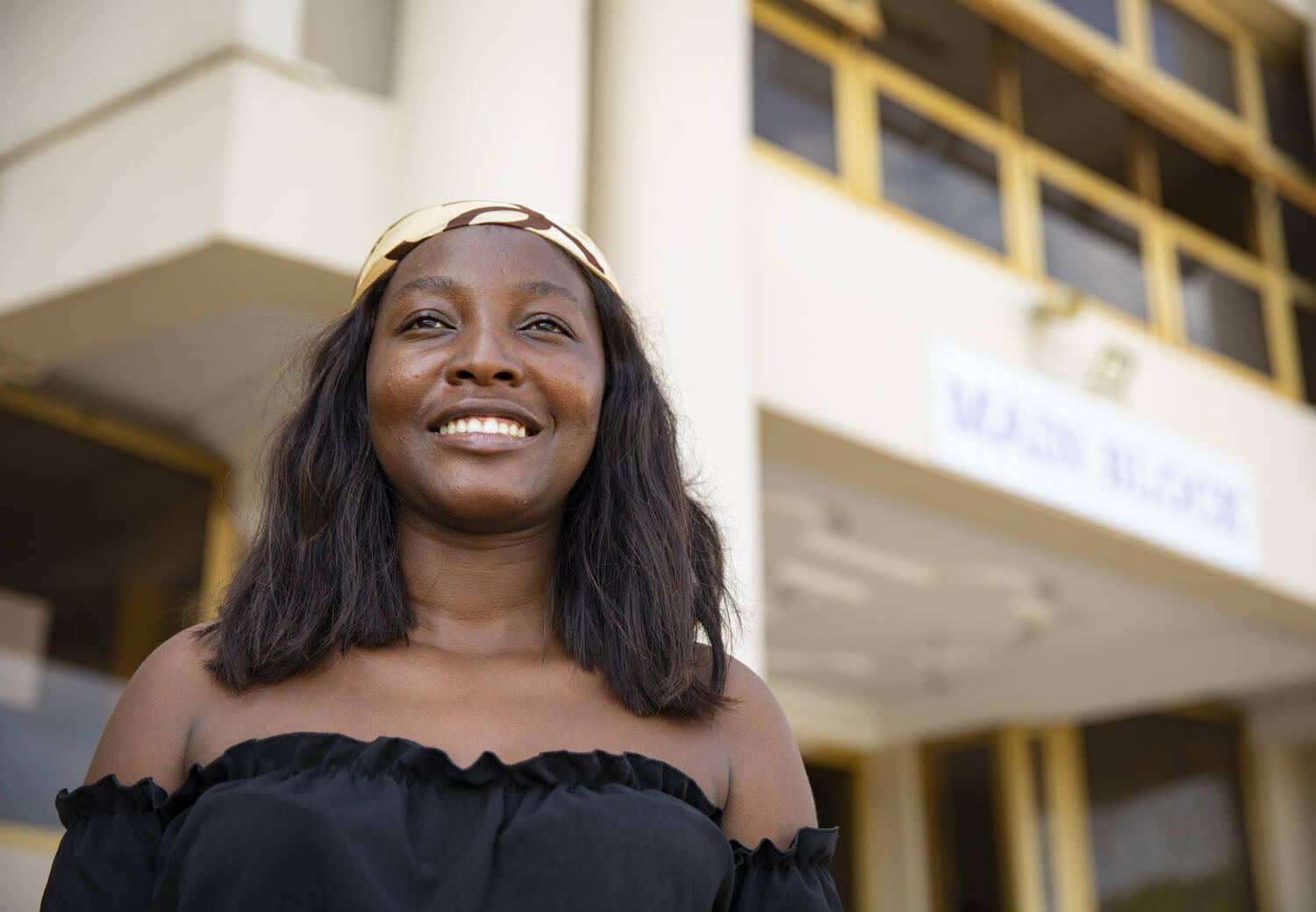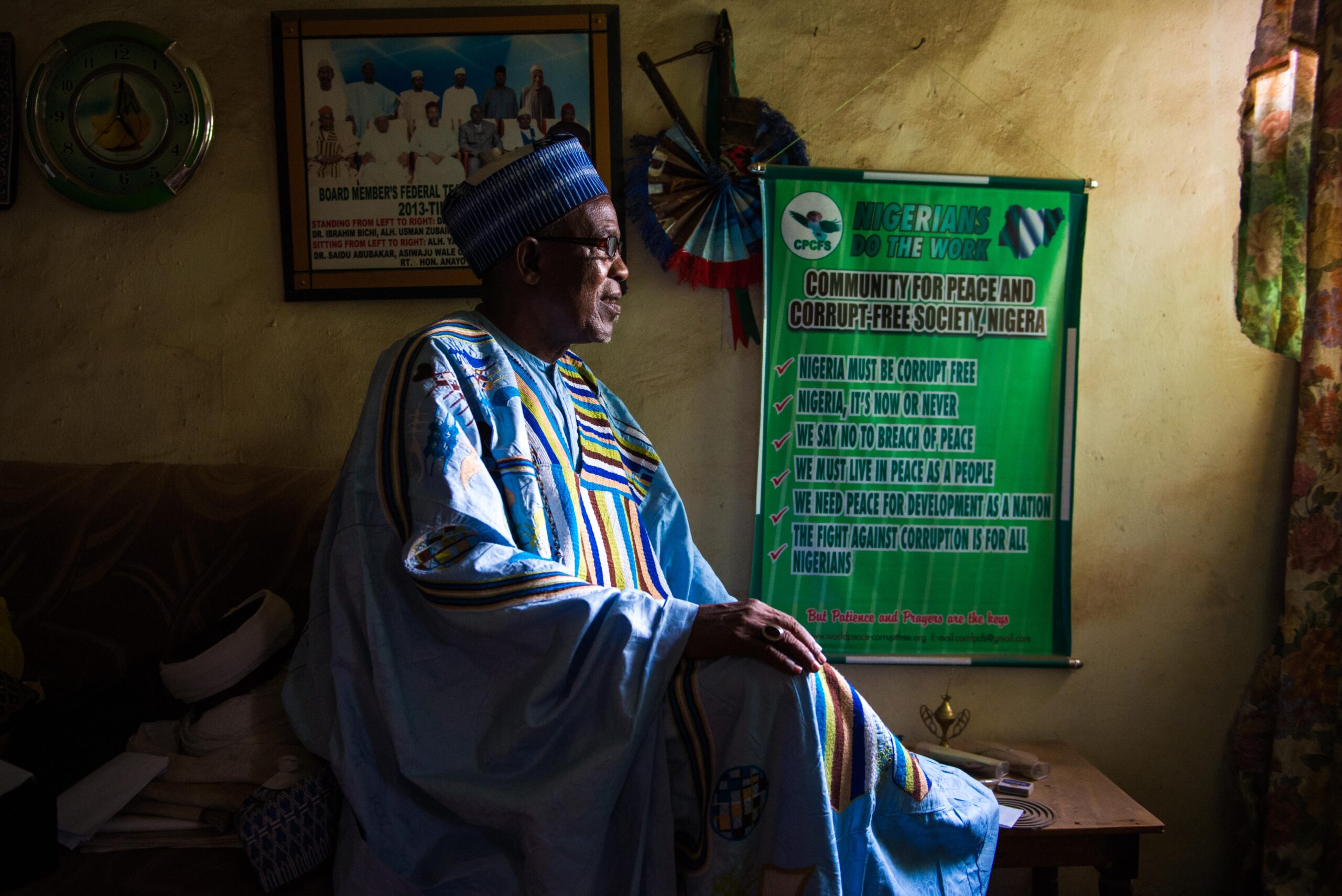
Access to reproductive choice can be life-changing.
Choice keeps girls in school, supports women to work outside the home, and saves lives by preventing unsafe abortions and maternal deaths. But for many, choice and the opportunities that it brings remain out of reach.
For remote communities and those in settings affected by conflict or climate change, access to reproductive choice can be limited or non-existent. Meanwhile, marginalised communities, such as LGBTQI people and people living with disabilities, continue to face intersecting barriers to care.
That’s why, our commitment to ensuring that no one is left behind is at the heart of our new strategy, MSI 2030. And, as we have shared in our new Reproductive Choice for All report, here’s what we think is needed to get there:
1. We need to level the playing field for rural and underserved women
MSI’s new analysis of DHS data found that across sub-Saharan Africa, the poorest fifth of women are twice as likely to face an unmet demand for contraception as the wealthiest fifth. This inequality costs lives. In Nigeria, for example, the poorest fifth of women are 80% more likely to die from pregnancy-related causes.
Most of these women live in rural regions, underserved by traditional health systems. Through interviews, we know that 60% of MSI’s rural outreach clients had no alternative access to their chosen contraception. But MSI data also shows that access can be delivered to these communities affordably, at scale. On average, it costs just £6 per year, or 2 pence / 3 cents per day, for our outreach teams to provide the contraception that protects a girl or young woman from an unintended pregnancy. To drive down inequality in reproductive healthcare, we need to rapidly scale up access to underserved communities.
Subscribe to our Spotlight newsletter to receive evidence updates straight to your inbox.
2. When it comes to reproductive healthcare, we need to be inclusive by design
We have learned that clients from marginalised communities, including adolescents and clients living with disabilities, value additional information and space to ask questions during counselling.
To design programmes that offer this tailored support, we need to put marginalised voices at the centre of our planning. From partnering with disability inclusion specialists in Sierra Leone, to working with sex workers in Bangladesh to dismantle barriers to access, and developing bespoke abortion pathways for trans men in the UK and Australia, we’ve seen that by listening to marginalised communities, we can deliver truly inclusive programmes.
3. For a fairer future, adolescent access remains key
Barriers to reproductive healthcare continue to hold young women and girls back, costing lives. Adolescents in low and middle-income countries are nearly twice as likely to face an unmet demand for contraception. MSI analysis of DHS data found that in Niger, one in two girls will give birth before their 18th birthday, while only one in 100 will finish secondary school.
In 2017, MSI launched a tailored adolescent strategy, which has expanded access to reproductive healthcare for over 4 million young people. But we know the fight is far from over. Learning from our evidence and experience under our last strategy, we must maintain this laser focus on delivering adolescent-friendly healthcare, so that young people have the reproductive choice to remain in school and determine their own futures.
4. No matter the client or location, choice cannot be compromised
A client’s location or socio-economic status should never inhibit their right to access quality healthcare. However, in many settings served by government sites and pharmacies, choice of contraceptive methods and services can be limited.
MSI’s mobile outreach teams and community-based providers aim to complement these existing services by offering a range of long acting-reversible contraceptives too, so clients can choose the option that is right for them. Our client exit interviews found that 81% of clients were able to access the method they had in mind at a mobile outreach service.
5. The landscape is changing for women and girls and we need to adapt fast
From COVID-19 to the climate crisis, we know that when crises occur, access to reproductive choice reduces as the risk of sexual violence and need for reproductive healthcare rises.
Of the 26 million people estimated to have been displaced by the climate crisis, 80% are women. By guarding against unintended pregnancies, reproductive choice can help women and their families to adapt when facing potential upheaval and depleting resources. We must act fast to protect access for women in humanitarian and crisis settings, when reproductive choice is often needed most.
6. For sustainable access, we need to strengthen public sector provision
In low and middle-income countries, it is estimated that 37-39% of contraceptive services are provided by the private sector. To ensure sustainable access to quality healthcare, we need to strengthen public sector provision of reproductive healthcare too.
Since 2012, MSI has worked with national governments to train over 10,000 public sector providers across 5,500 public sector facilities, reaching over 12.6 million clients. In our report we showed how we will take this partnership further, laying out our pathway to nationally led reproductive healthcare, by upskilling providers and creating an enabling policy environment.
7. For lasting impact, we need to change the rules
Reproductive healthcare continues to be over-medicalised and over-regulated, particularly for marginalised communities. To change this, over the past five years, we have partnered with governments and civil society organisations to support 53 policy, law, regulation, and financing changes. At a community level, we have partnered to shift social norms and drive community support for reproductive healthcare and rights, from facilitating joint decision making between couples in Burkina Faso, to using role play to engage community leaders in Zambia.
But unnecessary restrictions are still in place. Over the next 10 years, we will continue to work with governments and communities to remove barriers, so that every individual can access reproductive choice.
8. No organisation can do it alone – partnership is key
As the economic impact of the pandemic is felt worldwide and unmet demand for reproductive healthcare grows, the progress our community has made across reproductive choice hangs in the balance. But we can work together to protect it.
As we partner with the public sector to increase government ownership of reproductive healthcare, partnerships will be vital: from grassroots women’s organisations and community-based advocates, to national NGOs, advocacy partners, governments and funders, we will need to work together to dismantle barriers for marginalised communities, tailoring programmes, and building safe pathways to care.
We hope you will join us in making reproductive choice a reality for all by 2030. Only by working together, with the expertise and connections of partners, can we ensure that no one is left behind.
To partner with MSI to make reproductive choice a reality for all, contact our Partnerships & Philanthropy team via Partnerships&Philanthropy@msichoices.org
Subscribe to our Spotlight newsletter to receive evidence updates straight to your inbox.








